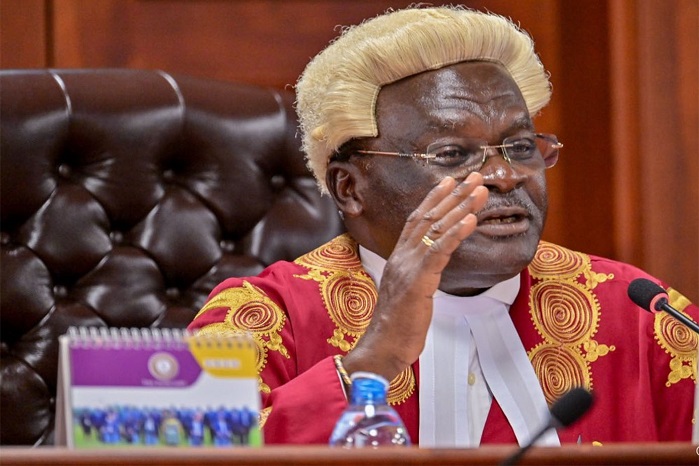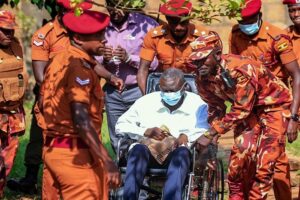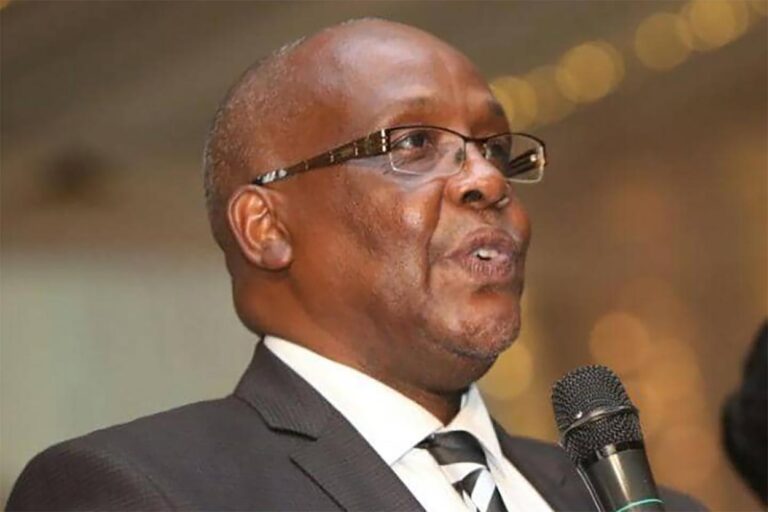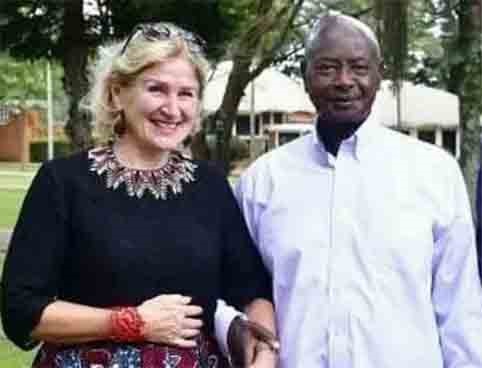
HABARI DAILY I Kampala, Uganda I The wheels of justice are driving the tide in Uganda’s judicial system. This has resulted into the shifting of the treason case against Dr Kiiza Begigye and his co accused, Obed Lutale Kamulegeya to the civil court system. Against all odds, there is a likelihood that they will soon receive bail and be allowed to attend court while coming from their respective homes.
According to the Uganda Constitution, a detained person has the right to apply for bail, especially where they are charged with or convicted of a criminal offense.
“He or she may apply to court to be released on bail and the court may grant that person bail on such conditions as the court considers reasonable,” reads part of the constitution, adding that a person has
the right to be presumed innocent as provided for in article 28(3)(a) of the Constitution.
Legal minds are also agreeable with this, saying the bail applicant has the right to liberty as provided for in article 23 of the Constitution.
“Bail is granted following the applicant’s committal to the obligation to attend trial, the discretion of court to grant bail on such terms and conditions as the court considers reasonable, and the need to balance the rights of the applicant and the interests of justice,” says Edward Lutwama, a practicing lawyer based in Kampala.
This makes Besigye a candidate to bail, and this may come his way in a few days if his legal team handles the matter expeditiously.
Other lawyers Habari Daily spoke to were also of the view that the civil judicial system might be sympathetic to Besigye given his status as a senior citizen and also due to his poor health.

Dr Kiiza Besigye arrives at the Nakawa court
“This will not be the first time a political leader will be granted bail. It has happened before in the case of Robert Kyagulanyi Sssentamu, Besigye himself, among others,” said another lawyer on condition of anonymity.
He however said that public pressure must also come to bear in this high profile case. “Local activists as well as sovereign nations can cause Government’s hand to shift when it comes to this case. Judges are also human beings and definitely not deaf.”
One positive sign that things might soon turn into Begigye’s favor was his calling off his hunger strike following his appearance in Nakawa Chief Magistrates Court on Friday.
Besigye, who had been fasting in protest of his continued detention, was brought to court in a wheelchair, visibly not in good shape to stand on his feet.
His hunger strike had sparked widespread attention, with hundreds of social media enthusiasts ad well as political activists appealing for his unconditional release.
Said Besigye: “I have decided to end my hunger strike today after seeing that there is some recognition of my presence here. However, I remain resolute in my pursuit for justice and will continue to speak out against oppression.”
Although he was returned to detention after his appearance, there is light at the end of the tunnel that he may be freed more sooner than later.
Intensified focus
The new developments where the Directorate of Public Prosecutions (DPP) and the Criminal Investigations Directorate (CID) have officially taken over Besigye’s treason case gives it a new twist.
This in effect means that the case has been transferred from the General Court Martial to the civilian judicial system, whence the Nakawa Chief Magistrates Court.
However, their continued remand is justifiable since the lower court lacks the jurisdiction to try capital offenses.
Although the specifics of the treason charges remain undisclosed, with the DPP and CID now in charge, investigations are expected to intensify as the prosecution builds its case.
Besigye has previously faced treason charges, notably in 2005 when he was accused of leading the People’s Redemption Army, a rebel group allegedly formed by renegade UPDF officers.
In all cases, he has emerged innocent and freed with no charge.
Conditions on Granting bail to an applicant
Must money be paid before one is released on bail?
The accused is bound to pay a sum of money fixed at the discretion of the court if he or she fails to appear for trial. The sum can be in cash or bond. Where the sum fixed is in a bond form, then no cash is paid but in case the accused fails to appear before court, he is bound to pay the bonded sum on his or her arrest. Where money is paid in cash, a receipt must be given.
What happens if bail is not granted?
The reasons for refusing bail must be given and the applicant informed of the right to apply to the Chief Magistrate or High Court.
Must bail be granted with sureties?
Courts have power to grant bail with or without sureties. In addition to sureties, the Court may ask the accused to deposit with it an important document such as a passport, a land title or any article it deems valuable or important enough to compel the owner to turn up for trial
A surety is a person who gives a guarantee to court that the accused will turn up for his or her trial if released on bail. He accepts the responsibility to pay a fixed sum of money to government if the accused does not appear. He must be an adult of sound mind and of good standing in society.




